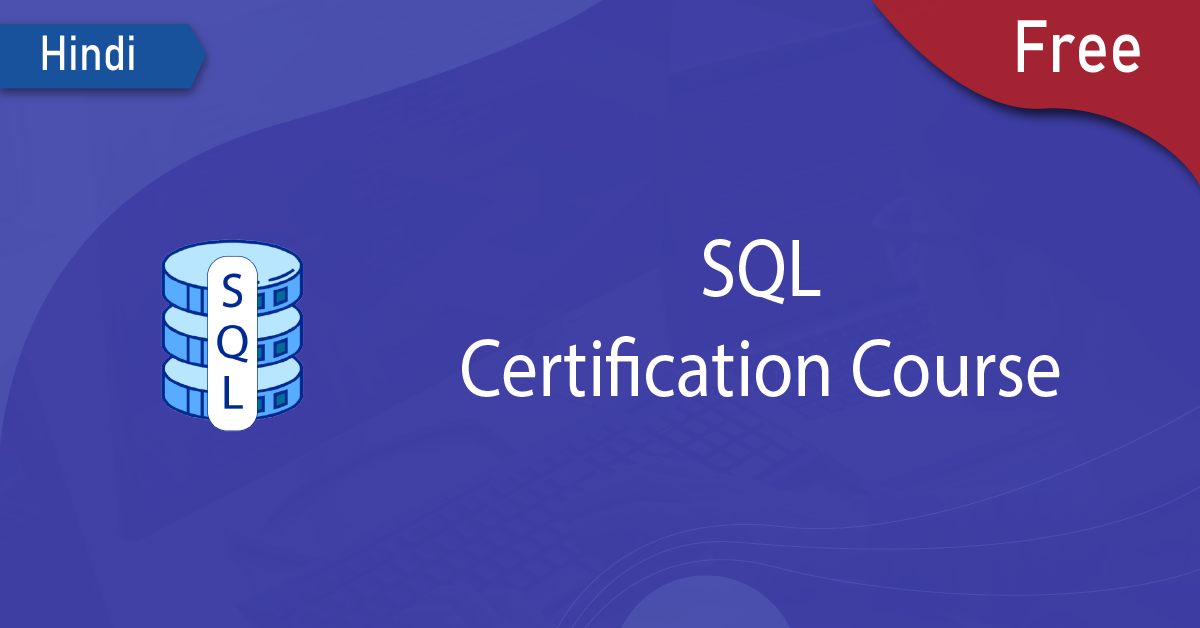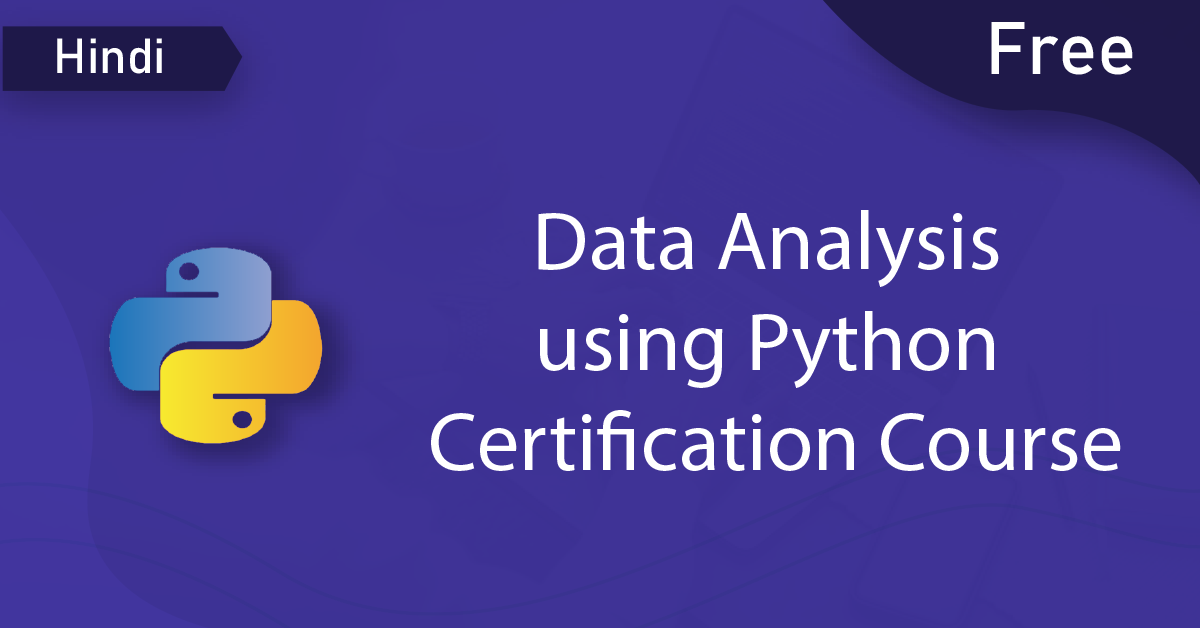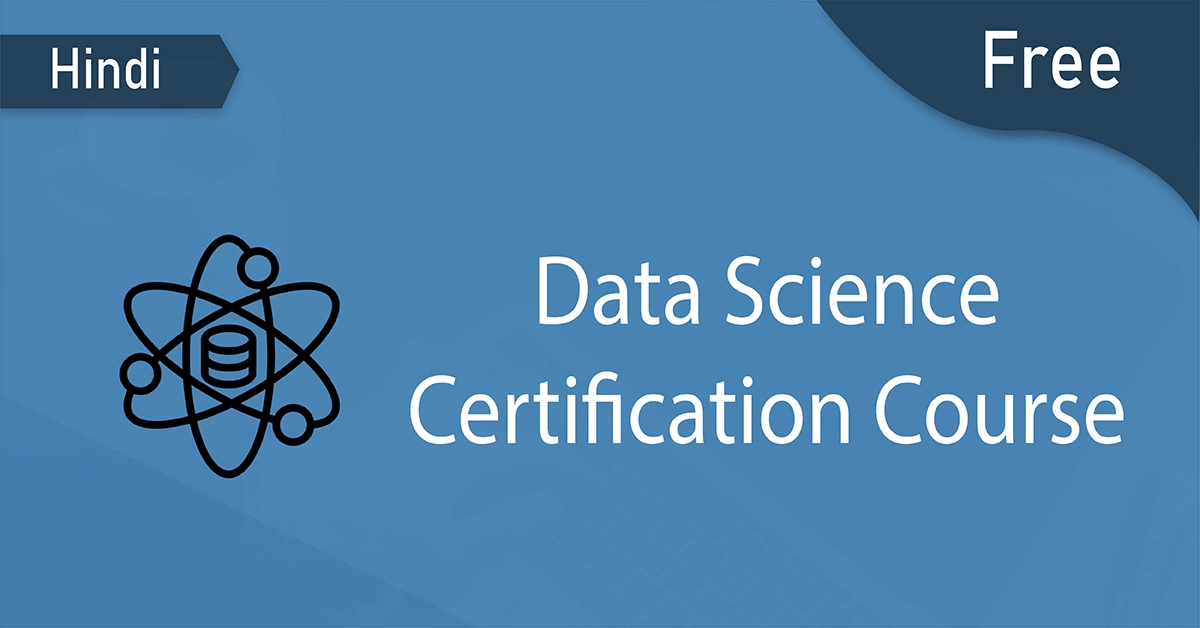Free data science courses offer the information and abilities you need to play with data effectively. Data analysis, machine learning, statistics, data visualization, and programming are just a few of the topics that are covered in these data science courses. Work on real-time data science projects, play with real datasets and become industry-ready.
Data Science Courses
What is Data Science?
Data science is an interdisciplinary field that blends methods, strategies, and tools from several disciplines to glean useful information and knowledge from data. Fundamentally, data science is all about turning unstructured data into knowledge that can be applied to problem-solving, prediction, and informed decision-making. It entails a methodical approach to gathering, cleaning, analyzing, and interpreting data in order to find patterns, trends, and relationships that can help us understand the world better and direct our activities.
Data analysis, which is investigating and analysing data to learn about its underlying structure and features, is one of the fundamental elements of data science. To make sense of huge and complex datasets, data scientists utilize statistical tools, machine learning algorithms, and data visualization approaches. They can find correlations, outliers, and hidden patterns in the data, allowing businesses to make data-driven choices that could improve productivity, customer satisfaction, and competitiveness.
Data science is a broad field having applications in a number of sectors, including marketing, e-commerce, finance, healthcare, and more. In areas like predictive analytics, fraud detection, recommendation systems, and medical diagnostics, it is essential. Data science is vital for organizations trying to leverage the power of data to gain a competitive edge, enhance operations, and spur innovation as the amount of data generated keeps growing exponentially. Data scientists are in high demand and leading the data revolution thanks to their distinctive combination of technical expertise and subject-matter expertise.
Why should you learn Data Science courses from DataFlair?
There are several strong arguments for learning data science. Firstly data science is driving the technology revolution and is now a crucial component of nearly every sector of the economy. The need for qualified data scientists is growing as companies and organizations depend more and more on data to make decisions. Gaining knowledge of data science puts you in a position to pursue a variety of job options in industries like technology, marketing, healthcare, and finance.
In a labor market that is changing quickly, this skill set can lead to excellent career prospects and job security. It is also very versatile. Additionally, data science gives you the tools to mine enormous amounts of data for insightful information. In the current era, these analytical abilities are more important than ever because data is being generated at a rate never seen before. The detectives of the digital era are data scientists, who find hidden patterns, forecast the future, and offer useful advice.
This talent not only gives you the ability to innovate and solve challenging challenges, but it also allows you to directly influence decision-making processes across a range of industries. Learning data science fosters critical thinking, problem-solving, and communication skills that are applicable to many facets of life and the workplace, in addition to the acquisition of technical knowledge.
Training benefits of Data Science courses
Numerous advantages of data science training make it a very worthwhile investment for both individuals and businesses. It primarily gives people with in-demand skills more power. Proficiency in data science gives professionals the tools they need to traverse and analyze huge databases, create predictive models, and unearth insightful information in today’s data-driven environment. A vast number of job prospects in industries like technology, finance, healthcare, marketing, and more are made possible by this skill set. Professionals in the field of data science are in high demand, frequently earning excellent incomes, and have stable employment.
Data science training can help firms make better decisions and run more efficiently. Trained data scientists may use data-driven insights to discover new trends, optimize operations, and make wise strategic decisions. Businesses can improve consumer experiences, customize products or services to target market segments, and spur innovation by leveraging data analytics. Additionally, data science may assist businesses in locating cost-cutting opportunities, reducing risks, and gaining a competitive advantage in their particular markets.
A culture of data-driven decision-making within a business is a significant advantage of data science training. Companies may guarantee that data is efficiently used at all levels by educating workers on data analysis and interpretation. This can then result in a more creative and adaptable business environment where data is fully exploited, assisting firms in adapting to shifting market conditions and staying ahead of the competition. In the end, data science training improves a company’s ability to transform data into useful insights, spurring growth and success.
Data Science Job Roles
- Data Scientists:
Data scientists are in charge of gathering, scrubbing, and analyzing data in order to glean insightful conclusions and create prediction models. They frequently utilize machine learning tools and programming languages like Python or R to provide data-driven suggestions that play a significant part in influencing corporate decisions. - Data Analyst:
Data analysts are people that specialize in gathering and analyzing data to aid in organizational decision-making. Typically, they use descriptive statistics and data visualization approaches to produce reports and dashboards that aid stakeholders in understanding data trends and patterns. - Machine learning Engineer:
Engineers with a focus on machine learning models and algorithms create and construct these systems. Utilizing tools like TensorFlow or PyTorch frequently, they focus on creating solutions that can automate decision-making or generate predictions. - Corporate Intelligence Analyst:
Business intelligence analysts are in charge of turning unprocessed data into useful insights that influence corporate plans. They build interactive dashboards and reports using SQL and data visualization technologies to help discover patterns and possibilities. - Data Engineer:
The architecture and technology required to efficiently gather, store, and process data are the areas of concentration for data engineers. They create data pipelines, combine data sources, and maintain databases to make sure that data is available and prepared for study by analysts and data scientists. - Data Scientist Manager/Director:
Skilled data scientists may assume managerial positions where they are responsible for managing teams of data scientists and managing data science initiatives inside a company. Setting strategic objectives and ensuring that data efforts are carried out successfully fall under their purview.
Data Science Courses FAQs
A solid background in mathematics and statistics, skill with a programming language like Python or R, and familiarity with data processing and visualization tools are often requirements for beginning a career in data science. A thorough knowledge of machine learning principles and techniques is also advantageous. Many data scientists also get industry-specific domain experience, which aids in their understanding and solution of challenges that are unique to that industry. If you are not aware of these tools and technologies, we have covered them in data science courses and bootcamps in great details.
For a Data Science courses, it is highly advised that you learn Python. Due to its adaptability and large libraries for data processing (e.g., NumPy, pandas), machine learning (e.g., scikit-learn, Tensorflow), and data visualization (e.g., Matplotlib, Seaborn), Python is one of the most widely used programming languages in the field of data science. Python is a great option for both new and seasoned data scientists because to its readability and simplicity of usage.


















